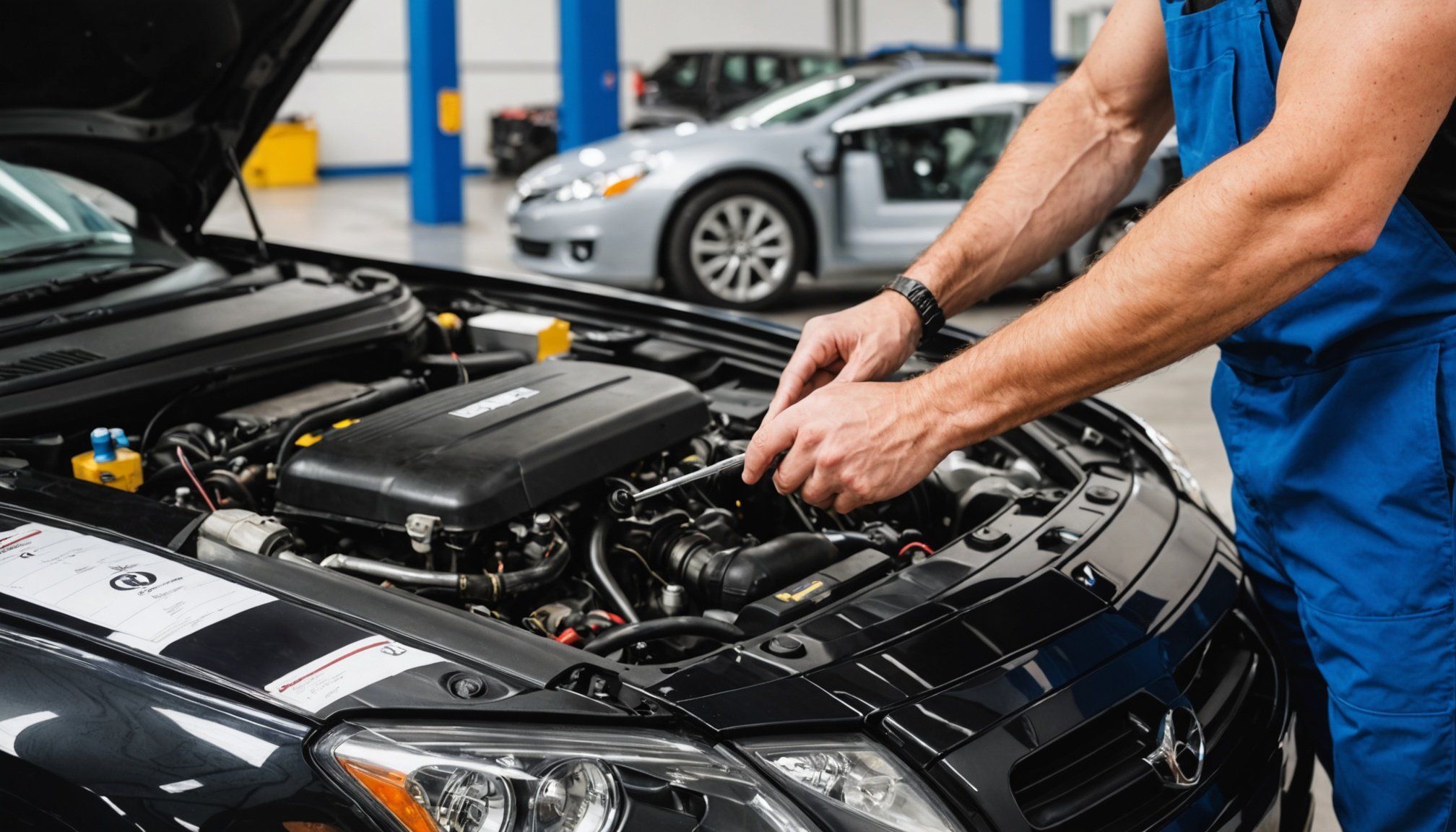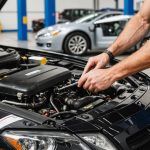When you take to the road, whether for a daily commute or a long road trip, the condition of your vehicle directly impacts your safety and that of others. Vehicle maintenance is not merely a chore; it is a vital part of responsible vehicle ownership that can prevent accidents and save lives. By ensuring that your car is in optimal working order, you can significantly reduce the risk of injury from accidents. This article explores the crucial role that regular maintenance plays in keeping vehicles safe and reliable.
Understanding the Importance of Regular Maintenance
Regular maintenance is essential for every vehicle owner. It involves routine checks and repairs that help to ensure the vehicle operates smoothly and safely. A well-maintained vehicle experiences fewer mechanical failures, which can lead to hazardous situations on the road.
Have you seen this : How can I conduct a pre-trip safety check on my vehicle?
Neglecting maintenance can result in various issues such as brake failure, tire blowouts, or engine malfunctions. These issues can contribute to serious accidents. For instance, tires that are not properly inflated or have insufficient tread can lead to a loss of traction, making it difficult to control the car during adverse conditions like rain or snow. In fact, according to the National Highway Traffic Safety Administration (NHTSA), nearly 30% of all accidents are attributed to tire-related problems.
Moreover, regular maintenance helps to identify potential problems before they escalate. Scheduled inspections of brakes, lights, and other critical systems allow drivers to address minor faults before they become major hazards. For example, if a driver notices that their brake pads are wearing thin during a routine check, they can replace them before experiencing a potentially dangerous situation on the road.
Have you seen this : Essential Guide to Properly Verify Your Off-Road Vehicle”s Rear Differential Lock Functionality
In essence, regular maintenance serves as a risk management strategy for drivers. By prioritizing this aspect of vehicle ownership, you not only protect yourself but also contribute to the safety of other road users.
The Connection Between Maintenance and Vehicle Safety
The safety of a vehicle is heavily influenced by how well it is maintained. Every component of a vehicle plays a role in its overall performance and the safety of its operation. For instance, the tires are the only contact point with the surface of the road. Ensuring that they are in good condition is paramount. This means checking not just the tire pressure but also the tread depth and general wear.
Brakes are another crucial component. A vehicle with ineffective brakes poses a serious threat not only to the driver but also to passengers and pedestrians. Regular inspections and timely replacements of brake pads, rotors, and fluids are essential. The difference between a safe stop and a potential accident can often be measured in the performance of your brakes.
In addition to the mechanical aspects, the electronic systems in modern vehicles, such as anti-lock braking systems (ABS) and electronic stability control (ESC), require regular checks to ensure they function correctly. These systems are designed to enhance a driver’s control over the vehicle, especially in emergency situations. A malfunctioning system can dramatically increase the risk of an accident.
Furthermore, driver education plays a critical role in conjunction with vehicle maintenance. Understanding the vehicle’s functionality and recognizing when something feels off can prompt timely action. Therefore, a combination of maintained vehicles and well-informed drivers contributes significantly to road safety.
Common Maintenance Issues That Lead to Accidents
Many issues can arise from poor vehicle maintenance, and recognizing these can help prevent serious accidents. One of the most common problems is tire wear and tear. Tires that are bald or improperly inflated can reduce traction, especially during wet or icy conditions, increasing the likelihood of losing control.
Another prevalent maintenance issue is the neglect of fluid levels. The engine oil, brake fluid, transmission fluid, and coolant are all vital for a vehicle’s performance. Low levels can lead to overheating, brake failure, or other critical malfunctions. For instance, a vehicle that runs out of brake fluid will not stop effectively, leading to potentially catastrophic results.
Lights, both front and rear, are often overlooked. Functional headlights and brake lights are essential for safety during nighttime or low-visibility conditions. A burned-out bulb can make it difficult for other drivers to see your vehicle or for you to see the road ahead, leading to dangerous situations.
The windshield wipers and windshield washer fluid are other commonly ignored maintenance aspects. Poor visibility can lead to accidents, especially during inclement weather. Regularly checking and replacing wipers and ensuring fluid levels are topped up can be a simple yet effective way to enhance your safety on the road.
In summary, many maintenance issues can contribute to accidents if not addressed. By staying vigilant and proactive about vehicle care, you can mitigate these risks.
The Role of Drivers in Vehicle Maintenance
While professional mechanics play a crucial role in vehicle maintenance, drivers also have a significant responsibility. Understanding how to care for your vehicle can make a substantial difference in maintaining its safety and reliability. Regular checks by drivers can help identify issues before they escalate into significant problems.
For instance, drivers should regularly inspect their vehicles for visible damage, unusual noises, or warning lights on the dashboard. These signs can indicate underlying problems that need immediate attention. Keeping an eye on tire pressure is equally important; many drivers underestimate how much proper inflation impacts vehicle handling and fuel efficiency.
Moreover, drivers should develop a routine for checking essential fluids, including oil, coolant, and brake fluid. A simple monthly check can prevent many problems associated with fluid levels. Additionally, investing in a basic maintenance guide specific to your vehicle model can empower you to manage minor repairs yourself, such as replacing wiper blades or changing air filters.
Educating oneself about common maintenance practices can enhance a driver’s ability to keep their vehicle in top condition. Many community colleges or local automotive shops offer workshops for drivers to learn about basic maintenance and safety checks.
In essence, while the expertise of a mechanic is crucial, a driver’s proactive approach to vehicle maintenance can significantly enhance the vehicle’s safety and performance.
The relationship between vehicle maintenance and accident prevention cannot be overstated. Regular maintenance is critical for ensuring that your vehicle operates safely and efficiently. From checking tires to inspecting brakes and ensuring all systems are functioning correctly, every little effort contributes to overall road safety. As drivers, you have the power to make a difference not just for yourself but for others on the road.
By understanding the importance of routine checks, being aware of common issues, and taking proactive steps in vehicle care, you can substantially reduce the risks associated with driving. The responsibility of maintaining a vehicle is shared between mechanics and drivers, and a collaborative effort can lead to safer roads for everyone.











